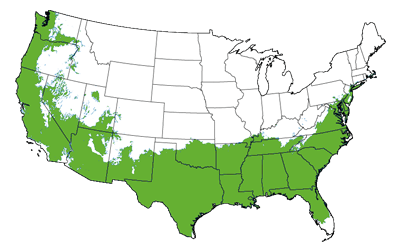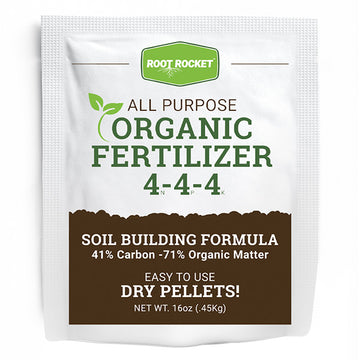Catawba Crape Myrtle
Product Details
 Growing Zones 7-9
Growing Zones 7-9
| Soil Type | Adaptable |
| Sunlight | Full, Partial |
| Drought Tolerance | Good |
| Mature Height | 10-15 Feet |
| Mature Width | 6-10 Feet |
| Growth Rate | fast |
| Fall Color | Orange |
| Bloom Color | Purple |
| Shipping Restriction | AZ, OR |
Like other Crape Myrtles, the Catawba is used as an ornamental tree, providing 3 seasons of interest from late spring to early fall.
The Catawba Crape has an extended flowering season lasting long into the fall. In spring, gorgeous purple flowers bloom, forming cone shaped clusters. In fact, the Catawba is one of the best purple flowering trees you can find!
The leaves surrounding these large, beautiful purple clusters are also bright and colorful. The foliage of the Catawba Crape Myrtle is green from spring to summer, enhancing the beauty of the purple flowers. In the fall, shades of orange and red attract the eye. Even in the winter it brings a pleasant sight. Like most Crape Myrtles, the Catawba has a peeling, cinnamon colored patched bark.
The Catawba Crape Myrtle is a small flowering tree. When matured it is 12 ft tall and 10 ft wide, forming a round dome shape. The Catawba thrives in full sunlight and rich, well draining soil. This beauty can be considered the perfect flowering tree for zone 7, zone 8, or zone 9.
Great for up-lighting!
Crape Myrtle Tree Comparisons
Be sure you choose the right location and have the appropriate conditions for your new Catawba Crape Myrtle to thrive. Luckily Crape Myrtles are pretty easy to grow and don't require much maintenance at all. If you follow growing zone guidelines for your particular variety you can plant your crape myrtle just about any time of year. Catawba Crape Myrtles grow in zones 7-9.
These trees prefer full sun, but can tolerate some shade and are adaptable to just about any soil as long as it is well-draining. Crape Myrtles do enjoy a slightly acidic soil with a pH range of 5.0 or 6.5 being ideal, but as long as your soil isn't extremely alkaline there is no need to modify it. Mulching with a 2-3 inch layer of pine straw or pine bark is ideal for crape myrtles. Do not allow the mulch to touch the trunk as these increases the chances of pests and disease. Mulching helps keep soil moist and protects roots during temperature extremes. Crape Myrtles should be watered deeply about 2 times per week after planting for about 3 months. After this establishment period, water deeply about once weekly when conditions are dry. Crape Myrtles are drought tolerant once established. Fertilize in early spring and when planting to give your tree a boost and help it achieve the best blooms. Choose a balanced, slow release fertilizer. If you know your soil is on the basic side choose a fertilizer that is for acid loving plants. Crape Myrtles do not generally require pruning, but if needed, prune when they are dormant to remove any dead, dying, or crowded branches. Avoid the need to over prune your tree by choosing a variety that fits best in your chosen spot. You can choose a variety that is only 5 feet tall up to varieties that grow over 30 feet tall. Catawba Crape Myrtles grow up to 15 feet tall and 12 feet wide.
The best way to prevent disease and pests is by providing the appropriate care for your plants. Proper location choice, watering and fertilization are the keys to your success. There are not many pests or diseases that cause severe problems for crape myrtles. Aphids are one of the few pests that attack crape myrtles. Minor infections aren't likely to cause problems, but a severe infection can weaken your tree. You can treat aphids naturally with horticultural oil, neem oil, or insecticidal soap. For severe infections use pesticides like carbaryl, also known as Sevin. The Catawba Crape Myrtle is resistant to Powdery Mildew.
The Catawba Crape Myrtle is great for small groupings or as a single specimen. Plant it next to a boulder for a simple but stunning impact. It is perfect for small yards or tight spaces that need help standing out. You can use this Crape for corners of your home or to anchor other structures. Plant one on both sides of an entry way or near your patio or outdoor gathering area if you are looking for a little shade while enjoying your company. No matter how you choose to display this tree, it will surely brighten up your landscape.
Learn when to prune your flowering shrubs.
For additional options, be sure to browse our Crape Myrtle and Black Diamond Crape Myrtle collection.











